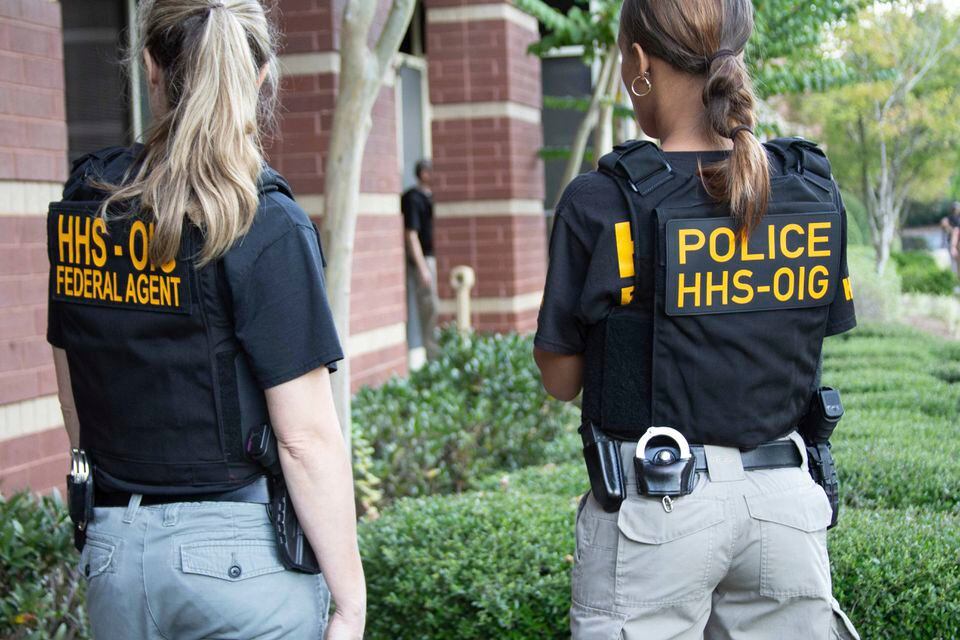When Federal Prison's in Your Future
Don’t Gamble On Inexperienced Consultants
Your Early Release is our Top Priority
Are You Going to Federal Prison
Are You Scared Angry and Confused
Looking For Answers? We Can Help!
In Criminal Cases Knowledge is Key
Consultants With Facts Instead of Opinions Can help
With Early Release & Unnecessary Time in Custody
Sentenced to Federal Prison?
Lawyers Lack Answers You Need
Contact Us Now We Can Help!
Who Investigates Healthcare Fraud

The investigation of healthcare fraud in the U.S. is a collaborative effort involving multiple federal and state agencies. Each brings its expertise to bear on different aspects of healthcare fraud, from insurance fraud and abuse of government programs to tax evasion and drug diversion.
The combined efforts of these agencies are vital in detecting, preventing, and prosecuting healthcare fraud, thus preserving the integrity of the nation’s healthcare systems and protecting public funds.
1. Federal Bureau of Investigation (FBI)
- Role: The FBI plays a crucial role in investigating healthcare fraud, particularly cases that involve complex criminal networks or large sums of money.
- Approach: Utilizing its vast resources, the FBI conducts thorough investigations, often involving undercover operations, surveillance, and collaboration with other agencies.
- Scope: The FBI’s healthcare fraud investigations span a variety of schemes, including billing fraud, illegal kickbacks, and fraud related to pharmaceuticals and medical devices.
2. Office of Inspector General (OIG), U.S. Department of Health and Human Services (HHS)
- Role: The HHS OIG is specifically tasked with combating fraud, waste, and abuse in all HHS programs, including Medicare and Medicaid.
- Approach: It employs a team of auditors, investigators, and attorneys to uncover fraud and enforce regulations. The OIG also issues reports and recommendations to improve the efficiency of HHS programs.
- Scope: The OIG’s investigations often result in criminal charges, civil penalties, and administrative actions against individuals and entities defrauding healthcare programs.
3. Centers for Medicare & Medicaid Services (CMS)
- Role: CMS, part of HHS, oversees the Medicare and Medicaid programs and plays a role in preventing and investigating fraud within these programs.
- Approach: CMS uses data analysis and risk assessment tools to identify potential fraud. It also collaborates with law enforcement agencies to investigate and prosecute fraud.
- Scope: CMS focuses on safeguarding the integrity of Medicare and Medicaid, two of the largest healthcare programs in the U.S.
4. Medicaid Fraud Control Units (MFCUs)
- Role: Operated at the state level, MFCUs investigate and prosecute Medicaid provider fraud as well as complaints of abuse or neglect in healthcare facilities.
- Approach: These units use a combination of legal and investigative resources unique to their respective states to tackle fraud.
- Scope: MFCUs play a critical role at the state level, working closely with state Medicaid agencies and federal authorities.
5. Internal Revenue Service (IRS)
- Role: The IRS investigates healthcare fraud related to tax evasion and financial crimes.
- Approach: The IRS employs financial and tax experts to uncover fraud through analysis of tax returns and financial transactions.
- Scope: The agency’s investigations often involve complex financial schemes where healthcare fraud intersects with tax and financial laws.
6. State Insurance Fraud Bureaus
- Role: Many states have established insurance fraud bureaus that investigate healthcare fraud within private insurance.
- Approach: These bureaus use investigative resources to pursue cases of fraud impacting private health insurers.
- Scope: Their investigations may lead to criminal charges or administrative actions against fraudulent healthcare providers and claimants.
7. Drug Enforcement Administration (DEA)
- Role: The DEA investigates healthcare fraud related to prescription drugs, particularly opioids.
- Approach: The DEA monitors prescription practices and investigates cases of drug diversion and prescription fraud.
- Scope: The DEA’s efforts are crucial in combating the opioid crisis and ensuring the legal and ethical distribution of controlled substances.